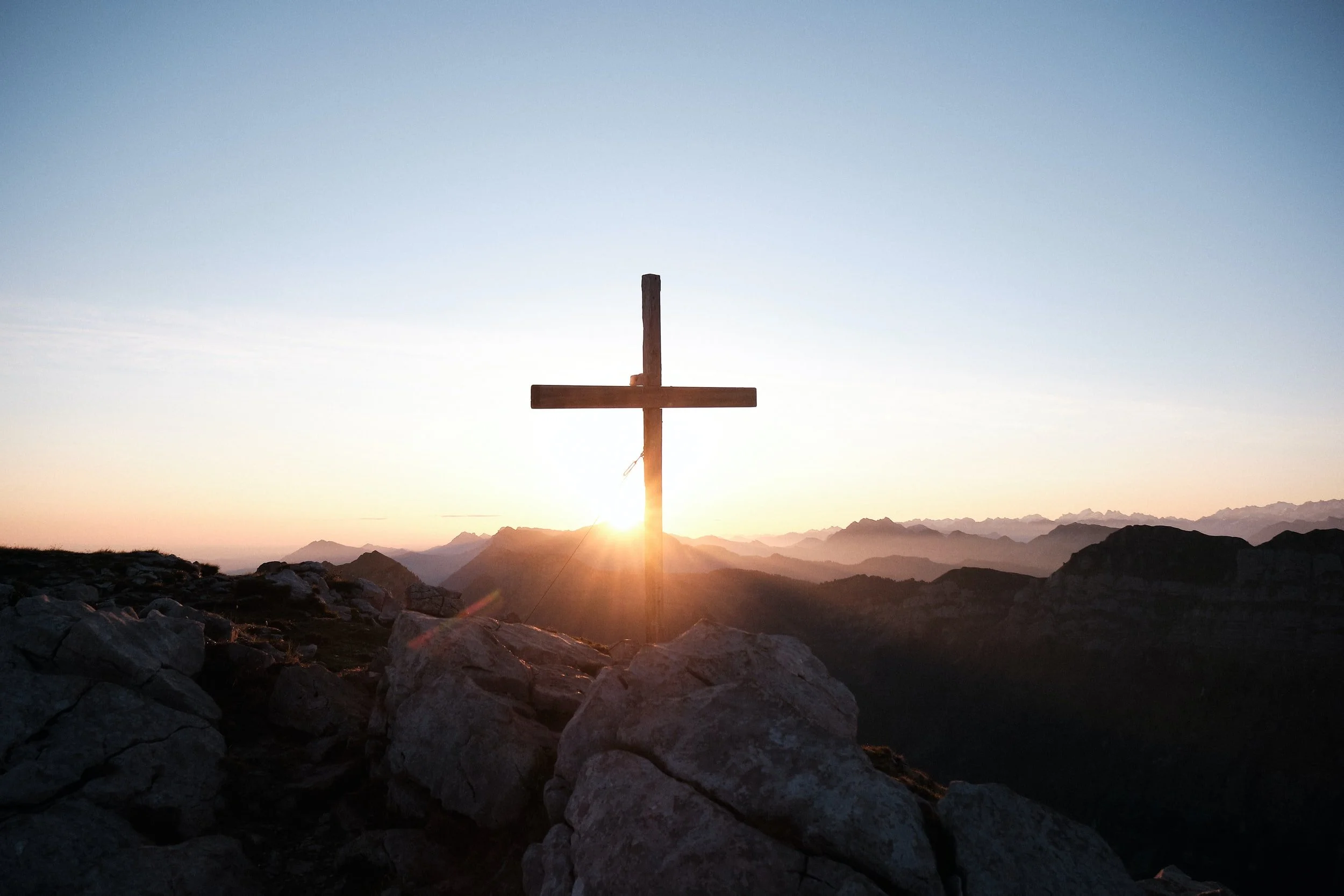
Covenant Life Community Church is a congregation of the Presbyterian Church in America (PCA)
Our Beliefs
-

Bible
We believe that God has spoken in the Scriptures, the sixty-six canonical books of the Old and New Testaments, through the words of human authors. As the verbally inspired Word of God, the Bible is without error in the original writings, the complete revelation of God’s will for salvation, and the supreme and final ultimate authority in all matters of faith and life. Therefore, it is to be believed in all that it teaches, obeyed in all that it requires, and trusted in all that it promises. (1 Thess. 2:13; 2 Tim/ 3:15-17; Jn. 3:16.)
-

God
We believe that there is one true God, the Creator and Sustainer of all things visible and invisible, who is infinitely perfect and exists eternally in three distinct yet fully divine persons of the Godhead: the Father, the Son, and the Holy Spirit. These three are one God, the same in substance, equal in power and glory. (Matt. 28:19; Jn. 10:30; Eph. 4:4-6)
-

Humanity
We believe that God created man, both male and female, in his image to have fellowship with him and to glorify and enjoy him forever. Therefore, all humans have great dignity and value. But our first parents, Adam and Eve, sinned when tempted by Satan. Because of our union with Adam, all humans are now sinners by nature and by choice, alienated from God, and under his wrath. Only through God’s saving work in Jesus Christ can we be redeemed, restored, and reconciled to God. (Lk. 24:46-47; Jn. 14:6; Acts 4:12; Rom. 3:23; 2 Cor. 5:10-11; Eph. 1:7 and 2:8-9; Titus 3:4-7)
-

Jesus Christ
We believe in the eternally preexistent Son of God who became incarnate without a human father, by being born of the virgin Mary. Thus, Jesus Christ is truly God and truly man, having two natures inseparably united in one divine person, with both natures being whole, perfect, and distinct, and each nature retaining all its own attributes. (John 1:1-3, 14, Isa. 7:14, Luke 1:20; 35, Gal. 4:4)
To save us from our sin and all its consequences, Jesus, as the second Adam, our representative and substitute, lived a sinless life earning a record of perfect righteousness for us. He voluntarily shed his blood (died) on the cross as our all-sufficient sacrifice, receiving the punishment from God that we deserve for our sin, thus satisfying the demands of God’s holy justice against us to reconcile us to God. God satisfied his own just demands by substituting his own Son on the cross for us. (1 Cor. 6:20, John 8:29, 46, Rom. 5:18-19, 2 Cor. 5:21; Mark 10:45, Heb. 4:15, Is. 53:4-6, 10,11, Rom. 3:23-26, 2 Cor. 5:21, Gal. 3:10,13, Col 2:13-15, 1 Pet. 2:24; 3:18)
On the third day, by the power of the Holy Spirit, God raised Jesus from the dead as evidence that his sacrifice on the cross was an acceptable payment for the penalty of our sin, and he defeated our enemies of Satan, death, and sin, and inaugurated God’s kingdom on earth, by revealing himself as the first-born from the dead of all his followers who will be raised from the dead when he returns. (1 Cor. 15:3-6, Rom. 4:24-25, Phil 2:8, Acts 2:29-39, Acts 17:30-31, Rom. 1:4, 1 Cor. 15:56.57, Rom 6:5–7, Rom. 8:29, Col. 1:18, 1 Cor. 15:20-28, 2 Pet. 3:7-13, Rev. 21:1-3)
Forty days after his resurrection, Jesus ascended to the right hand of the Father and poured out his Spirit to form a new humanity, called the Church, from every tribe, tongue, and nation. As the reigning Lord Jesus, he now performs his ministry of intercession for his Church as their High Priest and Advocate, advancing God’s kingdom on earth through them. Jesus will come again, personally and visibly, to complete his saving work and to consummate the eternal plan of God by establishing God’s kingdom on earth forever. (1 Cor. 15:3-6, Rom. 4:24-25, Phil. 2:8, Acts 2:29-39, Acts 17:30-31, 1 Cor. 15:56.57, Rom. 6:5–7 Acts 1:1-11, Matt. 24:30; 25:19, 31; 26:64).
-

Salvation
We believe that the Holy Spirit is the third person of the Triune God, equal in substance, power, and glory with the Father and the Son. By God’s grace, he applies the accomplished redemptive work of Jesus Christ to all who obey Jesus’ command to “repent and believe in the gospel” (Mk. 1:15). Through repentance we turn away from our sin and self-trust, and through faith we place our trust in Jesus Christ alone as Savior and Lord.
Through the Spirit’s gracious gifts of forgiveness (propitiation), righteousness (justification), and love (adoption), we receive a new standing before God. By his gifts of new birth (regeneration), redemption (freedom), and new life (sanctification), we receive a new heart to know, love, serve, enjoy, and glorify the Triune God in all areas of life.
Whereas forgiveness through Christ’s shed blood (propitiation) cancels our liability to punishment, justification is the positive counterpart. Justification bestows on believers in Christ a righteous standing before God. (Rom. 3:21-25) Justification conveys a picture of God as a righteous judge making a legal declaration about a guilty person in his heavenly courtroom.
In Romans 4:5, Paul writes, “And to the one who does not work but believes in him who justifies the ungodly, his faith is counted as righteousness.” Since justification is completely apart from works (Gal. 2:16), it cannot mean to make a sinner righteous, only to count, declare, or constitute a sinner to be righteous.
Paul teaches that when we believe in Christ, a great exchange of records takes place in the heavenly court. “For our sake he [God] made him [Christ] to be sin who knew no sin, so that in him we might become the righteousness of God” (2 Cor 5:21). This great exchange is God counting the record of our sin to be Jesus’ record and counting Jesus record of righteous-ness (perfect law-keeping) to be ours. In God’s amazing grace, he treated Jesus like a sinner so that he could treat us like Jesus.
-

Church
We believe that Jesus Christ, by his Holy Spirit, has established his one universal Church, the body of Christ, over which he alone is the head. The visible church consists of all who are united to Christ by profession of faith and baptism, and it is the ordinary means of building up God’s people in Christ and making disciples of all nations.
The church is called by Christ to live in the power of the Holy Spirit under the regulation and authority of the Bible. This includes the faithful preaching of the gospel of Jesus Christ, the proper administration of the sacraments of baptism and the Lord’s supper (also called communion and eucharist), a devotion to prayer, fellowship, and sharing the gospel in word and deed with the lost. Christ instituted two sacraments, the Lord’s supper and water baptism, to be regarded as a means of grace to strengthen the faith of his people, but not as a means of salvation from sin’s penalty.
Although the visible unity of the body of Christ is obscured by its division into many denominations of professing Christians, we do not believe that the visible unity of Christ’s body is destroyed. Therefore, we recognize that all visible churches that maintain the fundamental biblical integrity of preaching the gospel, administering the sacraments, prayer, fellowship, and witnessing in word and deed are true branches of the Church of Jesus Christ. (Eph. 1:10; 22-23, 5:23, 27, 32, Col. 1:18, 1 Cor. 1:2, 1 Cor. 12:12-13, Acts 2:39, 1 Cor. 12:28, Eph. 4:11-13, Acts 2:41-42)
-

Mission
We believe that Jesus Christ stands at the center of the biblical story, and the good news he proclaims is about the coming of God’s kingdom as the goal of history. God is restoring his rule over the whole of human life and all of creation. A central theme in the biblical story is God choosing a people to embody his kingdom, to be a preview of the goal of history, and thus to be an instrument and bear witness to Christ’s rule over all of life in word and deed – this is our mission.
The Bible tells the story of redemption and restoration, accomplished in the person and work of Jesus Christ, and applied by his Holy Spirit, which is the recovery of God’s originally good purposes for the whole of his creation and all of human life. The local church plays a central role in God’s story as that place where God’s renewing power is at work to form and nurture a faithful kingdom community.
God is now at work leading his new humanity and creation to its final destiny in a new heaven and a new earth. In the face of suffering, the church is called to side with God’s kingdom and participate in God’s redemptive mission as witnesses to God’s victory through the life, death, resurrection, ascension, and present reign of Christ. The mission of God’s people must be deeply rooted in a communal life centered in the gospel and also in a vibrant spirituality of worship, prayer, learning, fellowship, evangelism, and compassionate acts of mercy and justice. (Rev. 22:17, John 3:16, Matt. 28:18-20, Acts 1:8, Acts 4:12, Rom. 10:13-17, Rev. 11:15)
-

Last Things
We believe that God promises all who repent and believe in Jesus Christ even more than a new standing and a new heart from God. He also promises a whole new world. The exalted, reigning Christ will personally and visibly return to earth in power and glory. When he comes again, it will not be like the first time, as a humble, suffering servant. He will return as a sovereign King, executing judgment and establishing righteousness in all the earth. Only then will God’s kingdom finally come on earth in all its fullness.
In the meantime, when believers in Jesus Christ die, their souls are made perfect in holiness and go immediately to be with Christ in heaven, and their bodies remain in the grave. At the return of Christ, God will raise the dead bodily and judge the world, assigning the unbeliever to condemnation and eternal punishment and the believer to eternal blessedness and joy with the Lord in the new heaven and the new earth, to the praise of His glorious grace.
The coming of Jesus Christ, at a time known only to God, demands our constant expectancy. As our blessed hope, it motivates us to a godly life, sacrificial service, and empowered mission. (Matt 24:30; 25:19, 31; 26:64; John 14:3. 2 Pet. 3:7-13, Rev. 21:1-3)

